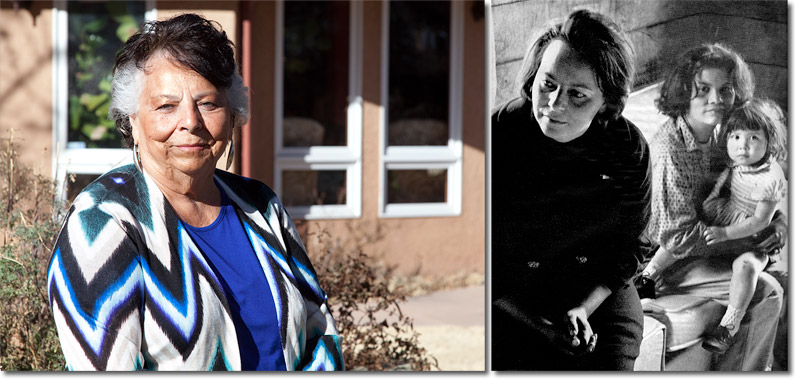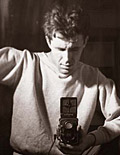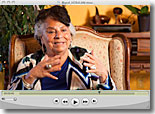LaDonna Harris – "Warpaint for the Senator's Wife"

|
|||
|
|
LaDonna Harris in the backyard of her house, Albuquerque New Mexico, Christmas Eve, 2012. |
|
"LaDonna Harris tours Oklahoma continually, advising Indian families." April 1967, photo by John Vachon. |
|
|
"The Indian is still fighting," LOOK wrote in April 1967. "Seventy-six years after the Battle of Wounded Knee (his last military gasp), he is still trying to find his place in a land of people who remain as strange to him as when they walked west behind oxen. The Indian is at the absolute bottom of the totem pole. He dies at 43, 20 years before the rest of us. He lives on $30 a week (a Negro in Watts earns $64). He never got through grade school (half of all Indians drop out) and rarely has a job (40 to 75 percent, depending upon the locale, are unemployed) because there isn't any." One bright spot, according to LOOK, was the half-Comanche wife of newly-elected U.S. Sen. Fred Harris from Oklahoma. She was soon in the process of taking Washington by storm. LOOK described her as "tough, smart, angry." She also was, and is, charming and engaging. As the Senator and his wife made the rounds of Washington, she found both elected officials and staff who were eager for first-hand knowledge of Indian Country. "We started giving 'Indian 101' classes," she remembers. |
|
The late-60s was a time when Harris could spend part of the day with President Lyndon Johnson, and the evening would watch her daughter, Kathryn, organize anti-war protests around the kitchen table. "They would all have wet handkerchiefs and they were all preparing. It would just break your heart," Harris says, with tears coming to her eyes. "I still get emotional about it. To see them preparing to go demonstrate, with the idea that they would be tear-gassed. So, those were terrible times, actually."
|






